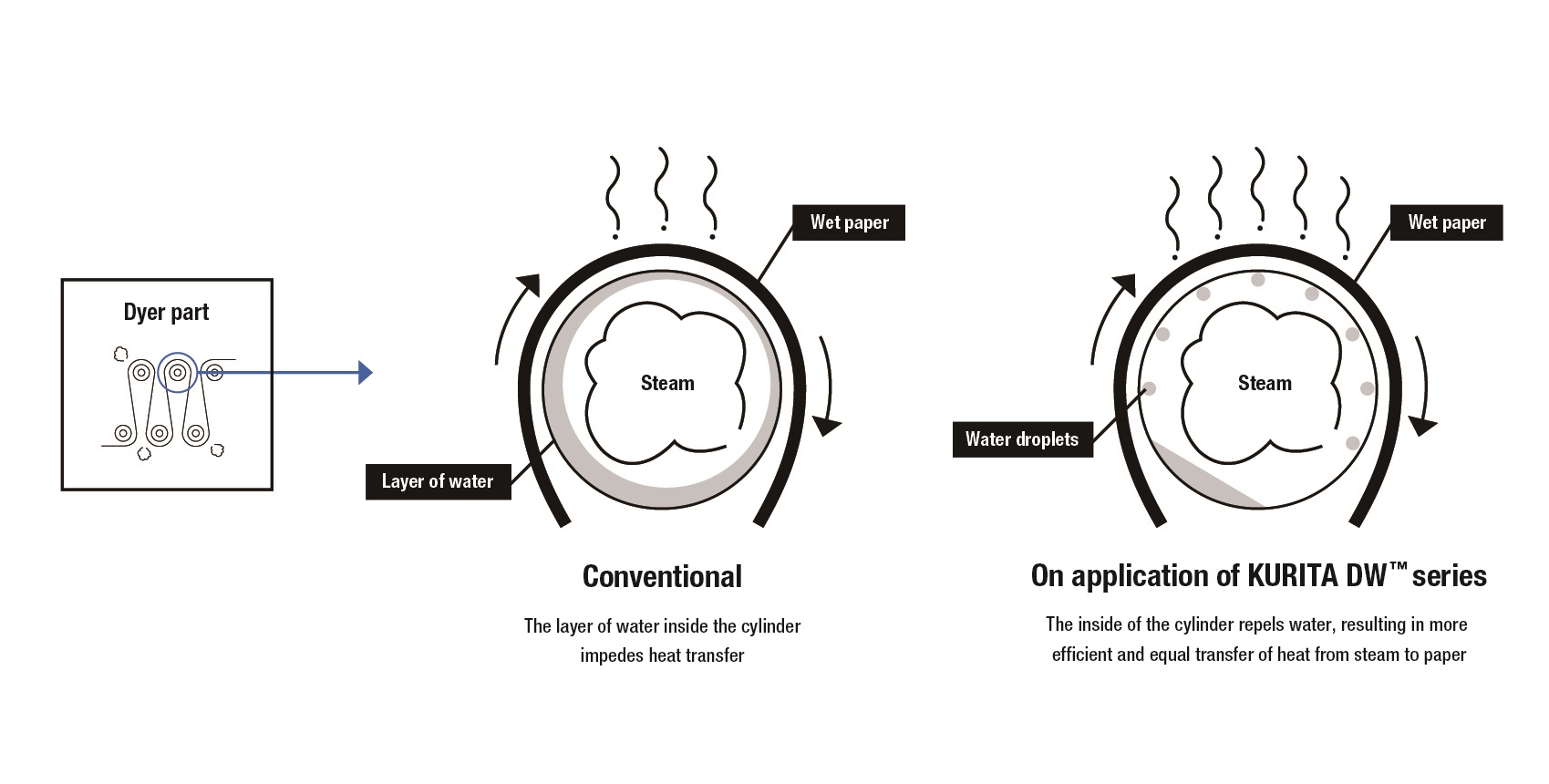GHG Emissions Reduction and Water Saving | Case Studies
KURITA DW™ series

To introduce a case of GHG emissions reduction and water savings in the paper and pulp industry.
Reducing GHG emissions and water use in the papermaking process by KURITA DW™ series
CELUPA INDUSTRIAL CELULOSE E PAPEL GUAÍBA LTDA. manufactures various types of paper such as medical sterilization packaging, food packaging, and coffee filters. The Kurita Group's KURITA DW™ series, enabling energy loss reduction and water savings, contributes to the customer’s efforts to reduce waste, energy use and water as part of their responsibility for the environment.
Increasing energy and water usage due to using large quantities of steam
The papermaking process, making products by pulping liquid into paper and drying it, uses a large amount of steam in its dryer section to dry the wet paper. In this section, the cylinder rolls make heat, and the water film is formed on their inner surface due to steam condensation. This water film, even with its slight thickness, significantly reduces the heat transfer rate, which increases steam use and leads to increased energy and water use.
Improving heat transfer rate by imparting water repellency by applying KURITA DW™ series
"Thanks to the Kurita Group’s solution, we could reduce the steam use and the frequency of operation shut down for periodic maintenance, enabling more stable operation of the system. In addition, water and energy use have been reduced, as have the GHG emissions produced in the system heating process following an operational shutdown. We are delighted with the benefits brought by the Kurita Group to tackle our key issues."

Voice of Customer
"Kurita's solution not only reduced steam usage, but also reduced the frequency of scheduled Maintenance shutdowns, enabling the system to operate more reliably. It also reduced water and energy usage, as well as GHG emissions generated during the system's Heating process after shutdowns. We are pleased with the benefits Kurita has brought to addressing our key challenges."